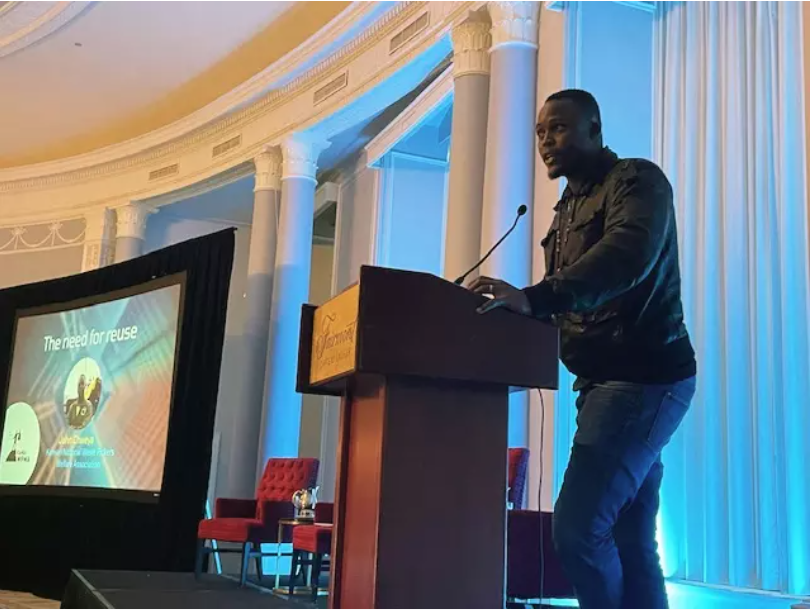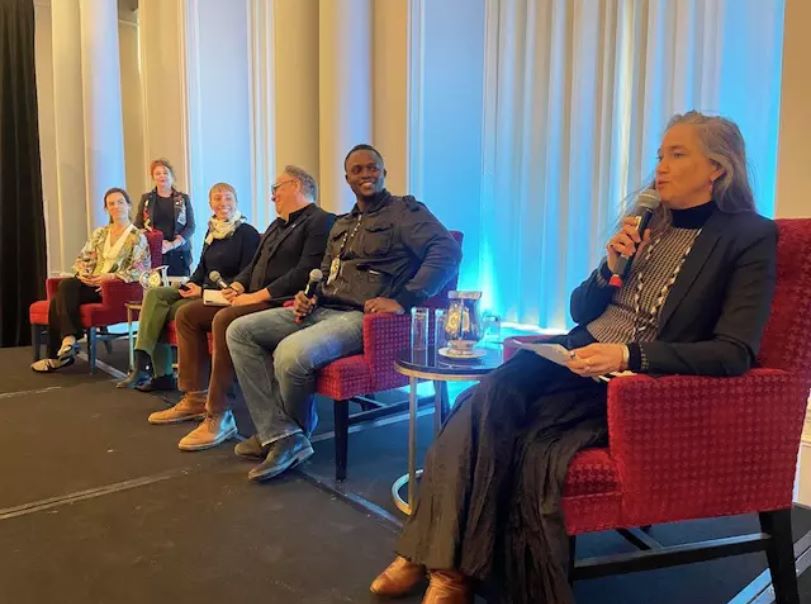Plastic experts urge world leaders to prioritise 'Reuse'
Revolution Plastics Institute
Negotiators trying to bring an end to plastic pollution around the world have been told to prioritise reuse systems, by experts from the University of Portsmouth
Researchers from the Revolution Plastics Institute (RPI) at the University delivered an important message to negotiators at the fourth round of Global Plastics Treaty talks in Canada today – reuse systems are key to success.
The RPI team co-hosted an event with the UK and Chilean Governments, and Ellen MacArthur Foundation. “Demystifying Reuse” focused on clarifying what reuse actually is and what it should look like as part of the Global Plastics Treaty.
The researchers are urging the countries meeting at INC-4 to ensure reuse systems are recognised as a key solution to reverse the plastic pollution crisis. Reuse has broad support from numerous governments, industry and NGOs, and substantial capacity to reduce both the production of new plastics and the ensuing pollution but researchers are concerned that its adoption may be hampered by confusion.
"Today’s event has enabled negotiators to join a, challenge-based discussion on reuse, as well as bringing together key reuse stakeholders in a participatory way for the first time in the context of the Treaty."
– Antaya March, Research Lead, Global Plastics Policy Centre
Antaya March, research lead of the Global Plastics Policy Centre at the University of Portsmouth, said: “Despite increasing support for reuse in the Global Plastics Treaty, there is still much confusion around what it actually is, and what it should look like. We want to take the mystery out of reuse and get it to the top of the INC-4 agenda.
“Today’s event has enabled negotiators to join a, challenge-based discussion on reuse, as well as bringing together key reuse stakeholders in a participatory way for the first time in the context of the Treaty.”
The event organisers were keen to make an impact by avoiding traditional event formats. Instead they used a more novel approach, by inviting delegates to a ‘game-show’. The audience’s reuse knowledge and attitudes were put to the test, before experts clarified areas of confusion.
Participants included, John Chweya, President of the Kenyan National Waste Pickers Welfare Association, WWF, Common Seas, Perpetual, the University of Santa Barbara, Berkeley University and Canadian reuse company - Friendlier.

The performance was a result of a two-day workshop in which the ‘actors’ co-designed a gameshow to bust some myths that may prevent countries from pushing for reuse in the Treaty.
Dr Cressida Bowyer, Deputy Director of the Revolution Plastics Institute, said: “We hope we got the attention of negotiators by using arts-based methods for stakeholder dialogue. These modes of engagement often have a longer lasting impact and draw out more nuanced perspectives than the traditional presentation and panel approaches often used in these spaces.”
The event held at the Fairmont Chateau Laurier Hotel in Ottawa was attended by NGOs, industry representatives, Governments and the informal waste sector. It was a chance to share knowledge and build support for reuse systems, something the Revolution Plastics Institute scientists believe is critical to making the Treaty a success.
Professor Steve Fletcher, Director of the Revolution Plastics Institute said: “It looks like reuse might be a measure that agreement can be reached on relatively straightforwardly, especially when compared to more divisive measures like caps on production or outright bans on materials.
“These more contentious approaches can stall progress as they confront varied national interests and economic considerations. In contrast, agreeing to implement reuse systems in settings that already have the infrastructure for it - such as restaurants, cafes, schools, public buildings, and event venues - is an easy lift in the context of very complicated political negotiations.”

Co-Investigator, Dr Erika Hughes, Interim Head, School of Film, Media and Communication and Reader in Performance at the University of Portsmouth, said: "In this performance, Reuse - and the global heroes championing this vital alternative to the discarding of single use products - were the real stars of the show. We hope that this performance will have a significant positive impact on the way in which reuse is framed in the global plastics treaty."
Recent polling from Greenpeace International, found that 74 per cent of UK residents agree that to stop plastic pollution, we need to cut plastic production. The polling found that 69 per cent of UK residents support the Global Plastics Treaty agreeing a reduction in plastic production, in order to stop biodiversity loss and limit global warming to 1.5 degrees Celsius.
The Revolution Plastics Institute, recently launched following the success of the Revolution Plastics initiative that has been instrumental in informing national and global policies on plastics, pioneering advanced enzyme recycling techniques and contributing to critical discussions on the UN treaty to end plastic pollution.
